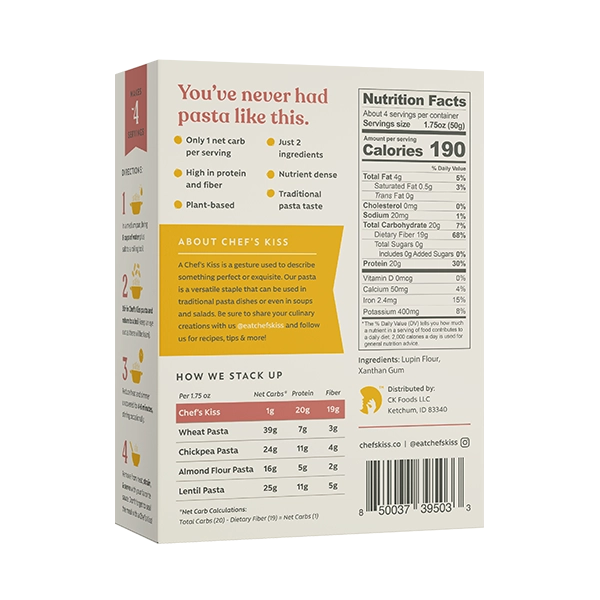
Keto Flu: Symptoms, Causes, and Quick Relief Tips
Unraveling the Keto Flu: A Comprehensive Guide to Symptoms, Causes, and Conquering It
Demystifying the Keto Flu: What Is It, Really?
The ketogenic diet, often referred to as the "keto" diet, has gained immense popularity due to its potential for weight loss and numerous health benefits. However, many individuals embarking on this low-carb, high-fat journey may encounter a cluster of symptoms collectively known as the "keto flu." Despite its widespread discussion, the medical community does not formally recognize this condition, leading to curiosity and confusion surrounding its nature.
The keto flu refers to a set of transitory side effects that can manifest within the first two to seven days of adopting a ketogenic diet. These symptoms may include headaches, brain fog, fatigue, irritability, nausea, sleep disturbances, and constipation, among others. While the experience can vary from person to person, the keto flu is often attributed to the body's adjustment to a significant dietary shift.
Unveiling the Causes: Why Does the Keto Flu Occur?
As the body transitions from its primary reliance on glucose for energy to utilizing ketones derived from fat, various physiological changes occur, potentially contributing to the manifestation of keto flu symptoms. Some plausible explanations for this phenomenon include:
-
Carbohydrate Withdrawal: The sudden and drastic reduction in carbohydrate intake can trigger a withdrawal-like response, akin to the experiences of individuals quitting addictive substances. This abrupt change can disrupt the body's accustomed energy pathways, leading to temporary discomfort.
-
Electrolyte Imbalance: When the body enters a state of ketosis, it tends to excrete more water and electrolytes, such as sodium, potassium, and magnesium. This depletion can contribute to symptoms like fatigue, muscle cramps, and headaches.
-
Metabolic Adaptation: The transition from a glucose-based metabolism to a fat-based one requires a significant metabolic shift. As the body adapts to this new state, it may experience temporary disruptions in energy production, leading to fatigue and brain fog.
-
Detoxification Process: Some proponents of the keto diet suggest that the keto flu may be a byproduct of the body's detoxification process, as it eliminates stored toxins and adjusts to a cleaner, more ketogenic state.
-
Gut Microbiome Shift: The drastic dietary change can also impact the gut microbiome, the diverse community of microorganisms residing in the digestive tract. As the microbiome adapts to the new dietary patterns, temporary digestive issues like constipation or diarrhea may arise.
While the exact mechanisms behind the keto flu remain a subject of ongoing research and debate, these potential causes offer insights into the body's intricate responses to the ketogenic diet.
Recognizing the Symptoms: A Comprehensive Overview
The keto flu can manifest through a range of symptoms, varying in severity and duration among individuals. It's essential to be aware of these potential side effects to better manage and mitigate them. Common symptoms of the keto flu may include:
-
Fatigue and Low Energy Levels: As the body adjusts to utilizing ketones for energy instead of glucose, individuals may experience a temporary dip in energy levels, leaving them feeling lethargic and sluggish.
-
Headaches and Brain Fog: Electrolyte imbalances and the body's adaptation to ketosis can contribute to headaches and a sense of mental cloudiness or difficulty concentrating, often referred to as "brain fog."
-
Irritability and Mood Swings: The hormonal and metabolic shifts associated with the keto diet can potentially impact mood regulation, leading to increased irritability, anxiety, or mood swings.
-
Nausea and Digestive Issues: The transition to a high-fat, low-carb diet can initially disrupt digestive processes, resulting in nausea, constipation, or diarrhea for some individuals.
-
Muscle Cramps and Weakness: Electrolyte imbalances, particularly low levels of sodium, potassium, and magnesium, can contribute to muscle cramps, spasms, and a general feeling of weakness or lethargy.
-
Sleep Disturbances: Some individuals may experience difficulty falling asleep or staying asleep during the initial stages of the keto diet, potentially due to hormonal fluctuations or electrolyte imbalances.
-
Bad Breath: As the body enters ketosis, it produces ketones, which can lead to a distinct, fruity odor on the breath, commonly referred to as "keto breath."
-
Rash or Skin Irritation: In rare cases, some individuals may experience skin rashes or irritation, possibly due to changes in the body's pH levels or other metabolic shifts.
It's important to note that not everyone experiences the keto flu, and the severity and duration of symptoms can vary greatly among individuals. While these side effects can be unpleasant, they are typically temporary and should subside as the body adapts to the ketogenic state.
Overcoming the Keto Flu: Practical Strategies and Remedies
While the keto flu can be a challenging experience, there are several practical strategies and remedies that can help alleviate the symptoms and support a smoother transition into ketosis. Here are some effective approaches to consider:
1. Stay Hydrated and Replenish Electrolytes
Dehydration and electrolyte imbalances are common contributors to many keto flu symptoms, such as headaches, fatigue, and muscle cramps. To combat this, it's crucial to stay well-hydrated by drinking an adequate amount of water throughout the day. Additionally, incorporating electrolyte-rich beverages like bone broth, coconut water, or sugar-free electrolyte drinks can help replenish essential minerals like sodium, potassium, and magnesium.
2. Prioritize Nutrient-Dense Foods
Ensuring a balanced and nutrient-dense diet can help mitigate the potential side effects of the keto flu. Focus on incorporating a variety of low-carb, high-fat foods that are rich in vitamins, minerals, and antioxidants. Leafy greens, cruciferous vegetables, avocados, nuts, and fatty fish are excellent choices that can provide essential nutrients to support overall well-being during this transition.
3. Consider Supplementation
While a well-planned ketogenic diet should provide most of the necessary nutrients, some individuals may benefit from targeted supplementation to address specific deficiencies or imbalances. Magnesium, potassium, and sodium supplements can help replenish depleted electrolyte levels, while omega-3 supplements and exogenous ketone supplements may provide additional support during the adaptation phase.
4. Ease into the Keto Diet Gradually
For some individuals, a gradual transition into the ketogenic diet may be more manageable than an abrupt, drastic change. By gradually reducing carbohydrate intake over a period of several days or weeks, the body may have an easier time adapting to the new dietary patterns, potentially minimizing the severity of keto flu symptoms.
5. Incorporate Stress Management Techniques
Stress can exacerbate the symptoms of the keto flu and hinder the body's ability to adapt to the new metabolic state. Incorporating stress management techniques like meditation, deep breathing exercises, or light physical activity can help promote relaxation and support overall well-being during this transition period.
6. Get Adequate Rest and Recovery
During the initial stages of the keto diet, the body may require additional rest and recovery time. Prioritizing quality sleep and allowing for proper rest can support the body's adaptation process and help alleviate fatigue and other keto flu symptoms.
7. Seek Professional Guidance
If the keto flu symptoms persist for an extended period or become severe, it's advisable to consult with a healthcare professional or a certified nutritionist. They can provide personalized guidance, address any underlying health concerns, and suggest appropriate modifications to the diet or lifestyle to ensure a safe and successful transition.
By implementing these strategies and remedies, individuals can effectively manage and overcome the challenges of the keto flu, allowing them to reap the potential benefits of the ketogenic diet while minimizing discomfort and supporting overall well-being.
When to Seek Medical Attention
While the keto flu symptoms are generally temporary and manageable, there may be instances where seeking medical attention is warranted. If the symptoms persist for more than two weeks or become severe and debilitating, it's advisable to consult with a healthcare professional. Severe or prolonged nausea, vomiting, abdominal pain, or any concerning changes in overall health should not be ignored.
Additionally, individuals with pre-existing medical conditions, such as diabetes, kidney disease, or liver problems, should consult with their healthcare provider before starting a ketogenic diet. These conditions may require closer monitoring and adjustments to medication or dietary approaches to ensure safety and effectiveness.
The Importance of Proper Monitoring and Medical Supervision
While the ketogenic diet can offer potential benefits for weight management and certain health conditions, it's crucial to approach it with caution and under proper medical supervision. Regular monitoring of key health markers, such as cholesterol levels, blood pressure, and kidney function, is essential to ensure the diet's safety and efficacy.
Healthcare professionals can provide valuable guidance on tailoring the ketogenic diet to individual needs, addressing any potential nutrient deficiencies, and monitoring for any adverse effects or complications. Additionally, they can offer insights into the long-term implications of following a ketogenic diet and make informed recommendations based on an individual's overall health status.
Embracing a Holistic Approach to Keto Flu Management
While the keto flu can be a challenging experience, it's important to approach it with a holistic mindset. Incorporating lifestyle factors such as stress management, adequate sleep, and regular physical activity can significantly contribute to overall well-being and support the body's adaptation to the ketogenic state.
Furthermore, maintaining a positive and resilient mindset can help individuals navigate the temporary discomforts of the keto flu with greater ease. Celebrating small victories, embracing the journey, and focusing on the potential long-term benefits can provide motivation and encouragement during this transitional phase.
Final Thoughts: Perseverance and Patience on the Keto Journey
The keto flu, while unpleasant, is a temporary phase that many individuals experience when embarking on the ketogenic diet. By understanding the potential causes, recognizing the symptoms, and implementing practical strategies and remedies, it is possible to navigate this transition period with greater ease and success.
Remember, every individual's experience with the keto flu may vary, and it's essential to listen to your body, adjust accordingly, and seek professional guidance when necessary. With perseverance, patience, and a commitment to a holistic approach, the keto flu can be overcome, allowing you to reap the potential benefits of the ketogenic lifestyle.
Embrace the journey, celebrate small victories, and remain steadfast in your pursuit of better health and well-being. The path to ketosis may have its challenges, but with the right mindset and strategies, you can emerge stronger, more resilient, and closer to achieving your goals

















